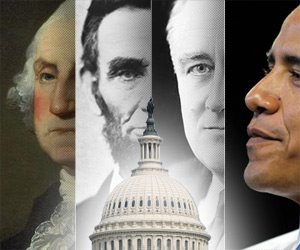Robert Samuelson is always fantastic for providing big-picture perspective on all matters economic. In some cases, like today's column, he's highlighting the fact that the 2008-2009 recession is not going to be a doomsday depression... he provides a moderating influence. In other cases - such as when he talks about the aging of the baby boom generation and it's effect on entitlements - his big-picture perspective is a call to action from the complacency that grips the country. Either way, he always has something good to say (even if I don't agree with it 100% of the time), and I thought I'd share today's article.
One thing he highlights that is important - the fundamentals of the American economy are strong. We have strong financial institutions (despite the credit crisis), strong housing markets (despite the subprime crisis), and strong labor markets (despite recent job loss). I think if anything is going to unleash a system-level crisis like the Great Depression, it will have to be external. Particularly it might be:
1. Depressions in other major economies (ie, China) that cannot deal with shocks like fuel price increases spreading to the U.S. The series of financial crises that wracked Mexico, Brazil, Russia, Indonesia, Thailand, and South Korea in 1997-98 demonstrated that as economies get more integrated, it's easier for them to spread ailments.
2. A loss of faith in the U.S. dollar, leading to massive dumping of dollar reserves by central banks around the world.
The scary thing is that (1.) both of these scenarios would come up on us fast, and (2.) they both will emerge outside the U.S. economy. BUT - we can do things to prevent both of them as well, and that's where policy should be directed.
In other news, this is a new Urban Institute Tax Policy Center report on the candidates tax plans. It projects that both candidates plans will continue fiscal deficits, but that McCain's will be substantially greater than Obama's. I was just at a release event for the report where the senior economic policy advisors for both campaigns commented on it - the Obama guy disputed the baselines that the TPC report compared their plans to, but came out with the same basic point - even if you use a more reasonable baseline, the difference between the McCain and Obama plans are maintained. I'm a little slow when it comes to tax policy, so I can't comment much more on that - but I've gotta say I was impressed with a lot that both sides had to offer. As Urban analyst Len Burman said at the event - both sides could benefit from borrowing a few policies from the other.
They’re Baaaack!
20 hours ago


